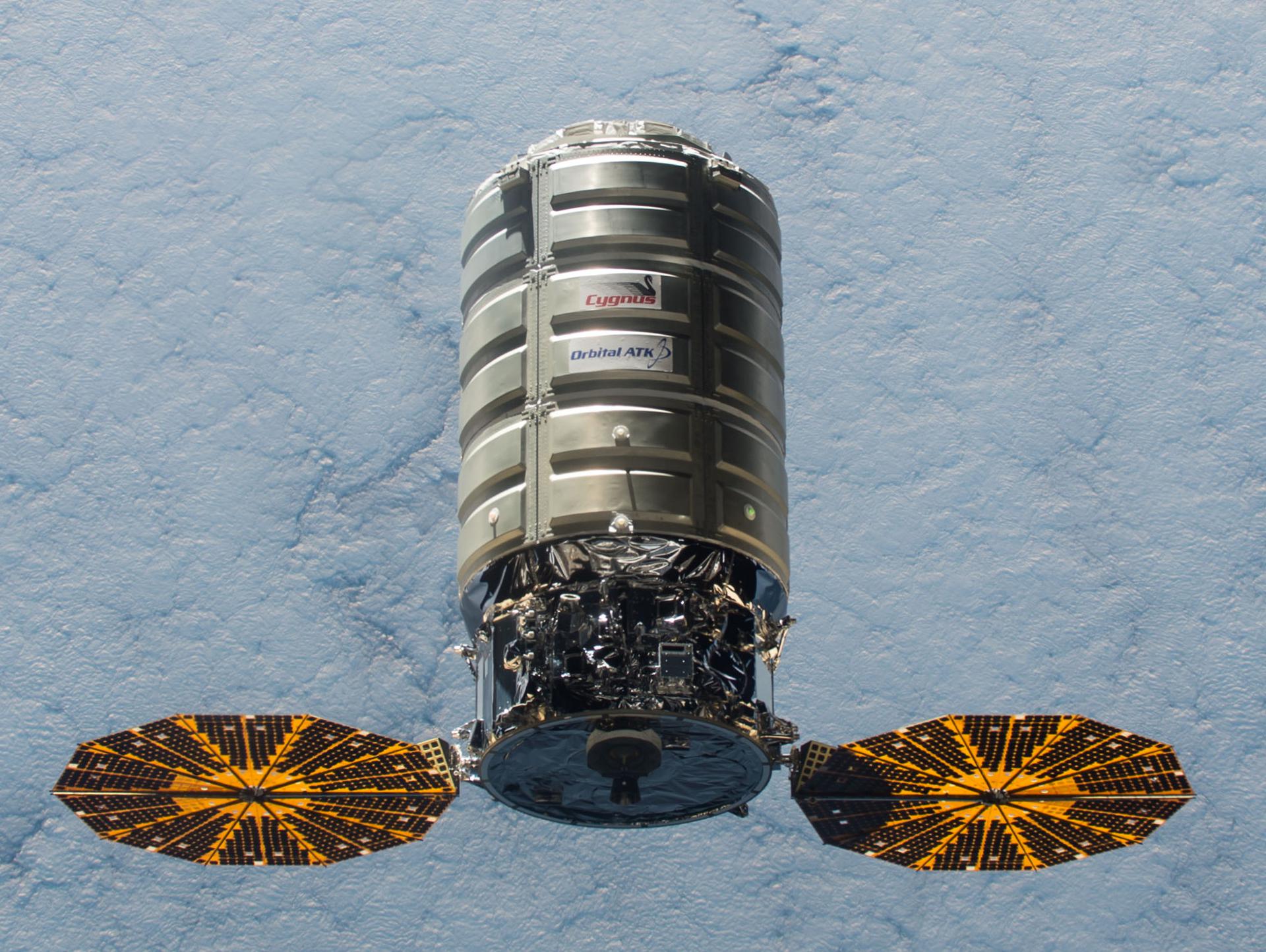
Cygnus Upgraded
In-active Cargo Cargo Resupply Payload Capacity: 5000 kg Diameter: 3.07 m Height: 7.8 m()
None
Cargo Earth Orbit Logistics
Flight Life
1 week to 2 years design life.
Description
The Cygnus spacecraft is launched aboard Antares to deliver cargo to the ISS and commercial space stations. It has no heatshield so at the end of its mission its used to dispose of waste by burning up in the Earths atmosphere.
History
Cygnus is a spacecraft developed originally by Orbital ATK and then acquired by Northrup Grumman after an acquisition. It is used to transport cargo to the ISS. The first operational mission of Cygnus to the ISS was in September 2013. One flight on 28 October 2014 ended in a failure when the Antares launch vehicle, used to launch the Cygnus, exploded shortly after launch. This set back the Cygnus launch schedule over a year. Following the launch anomaly a new version known as 'Cygnus Enhanced' was flown, with an extra 700kg payload capacity. This 'upgraded' variant extends the payload module by 1.5 meters, allowing for a total pressurized cargo capacity of 5000 kg.
Ariane 64
Amazon Leo (LE-01)
Ariane Launch Area 4 - Guiana Space Centre, French GuianaAmazon Leo, formerly known as Project Kuiper, is a mega constellation of satellites in Low Earth Orbit that will offer broadband internet access, thi…
Vulcan VC4S
USSF-87
Space Launch Complex 41 - Cape Canaveral SFS, FL, USAUSSF-87 will launch two identical Geosynchronous Space Situational Awareness Program (GSSAP) satellites GSSAP-7 and GSSAP-8 directly to a near-geosyn…
Proton-M
Elektro-L No.5
81/24 (81P) - Baikonur Cosmodrome, Republic of KazakhstanElektro-L is a series of meteorological satellites developed for the Russian Federal Space Agency by NPO Lavochkin. They are designed to capture real…
Smart Dragon 3
PRSC-EO2 & 6 satellites
South China Sea (launch location 3) - Haiyang Oriental SpaceportCarried 7 satellites to sun-synchronous orbit, including PRSC-EO2 (Earth observation satellite for the Pakistan government's SUPARCO) & CUHK-1. Detai…
Falcon 9
Starlink Group 17-34
Space Launch Complex 4E - Vandenberg SFB, CA, USAA batch of 24 satellites for the Starlink mega-constellation - SpaceX's project for space-based Internet communication system.
Falcon 9
Starlink Group 17-33
Space Launch Complex 4E - Vandenberg SFB, CA, USAA batch of 25 satellites for the Starlink mega-constellation - SpaceX's project for space-based Internet communication system.
Long March 2F/G
Chinese Reusable Space Vehicle
Launch Area 91 (SLS-1 / 921) - Jiuquan Satellite Launch Center, People's Republic of China4th flight of the Chinese spaceplane capable of returning to Earth.
Soyuz 2.1b/Fregat-M
Kosmos (Unknown Payload)
43/4 (43R) - Plesetsk Cosmodrome, Russian FederationUnknown classified payload(s) for the Russian military.
Falcon 9
Starlink Group 17-32
Space Launch Complex 4E - Vandenberg SFB, CA, USAA batch of 25 satellites for the Starlink mega-constellation - SpaceX's project for space-based Internet communication system.
Long March 2C
AlSat 3B
Launch Area 94 (SLS-2 / 603) - Jiuquan Satellite Launch Center, People's Republic of ChinaEarth observation satellite built by China's CAST for the Algerian Space Agency.

